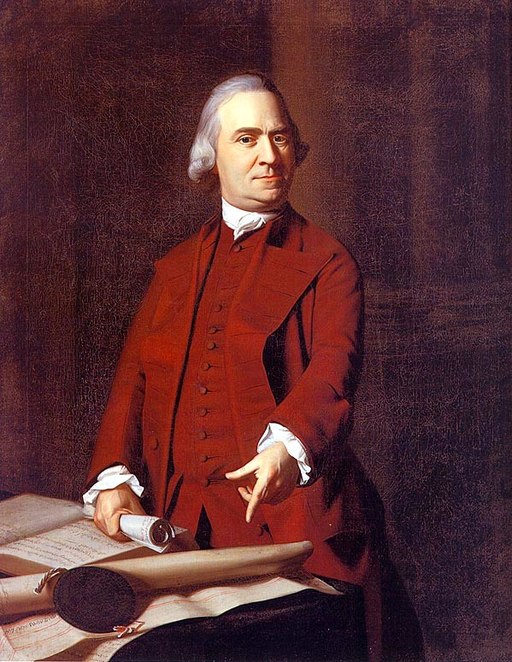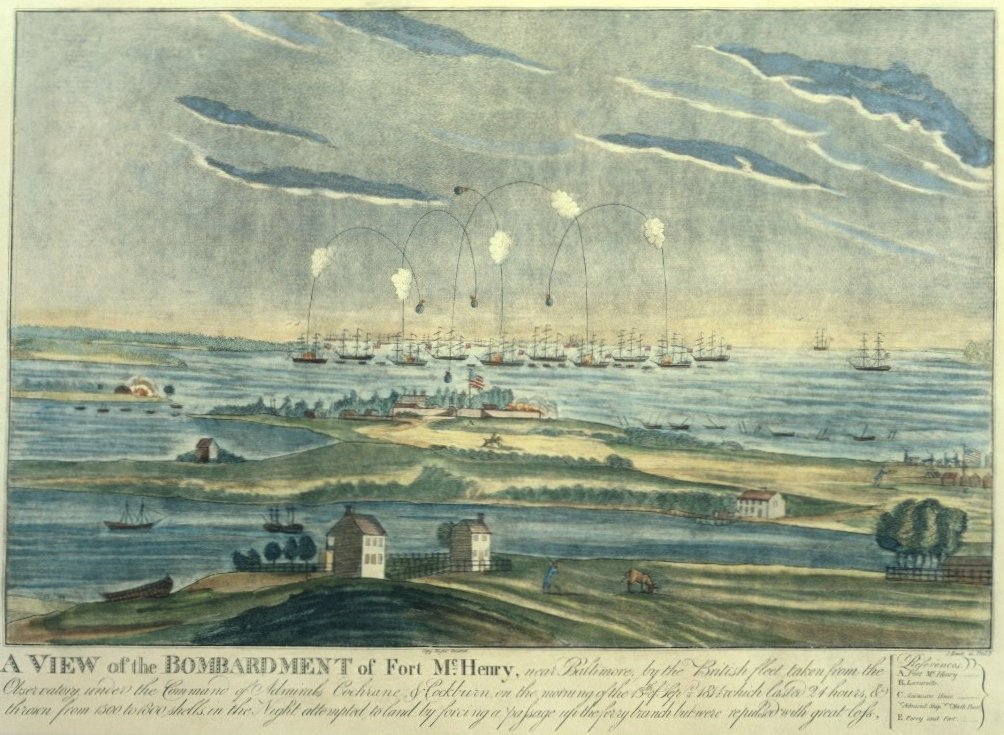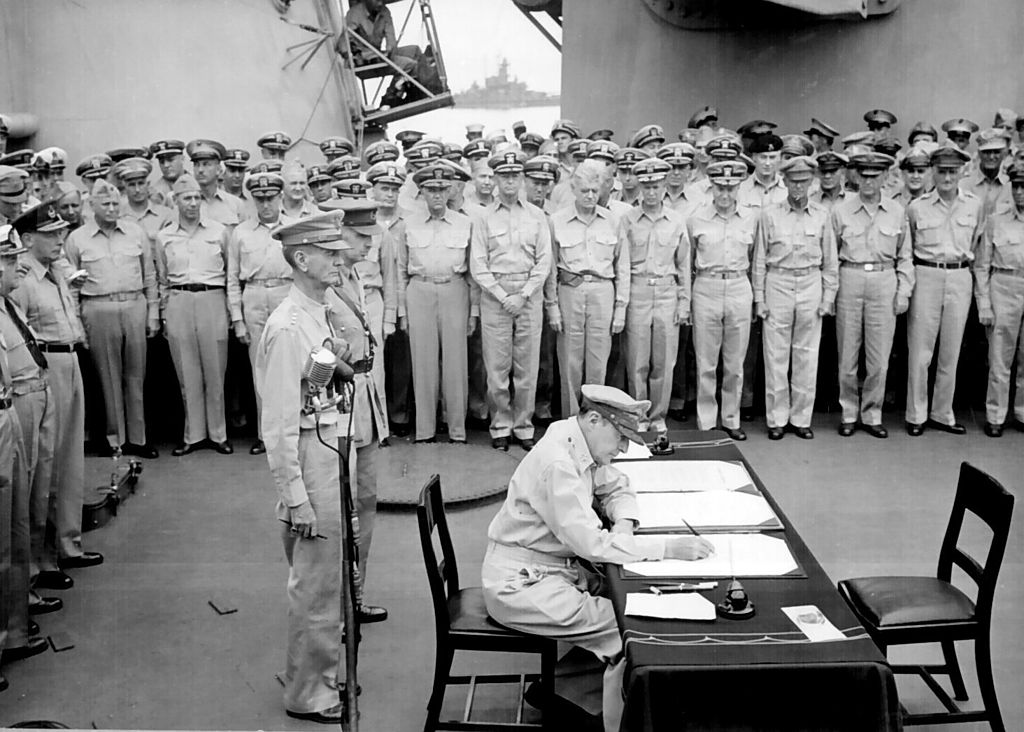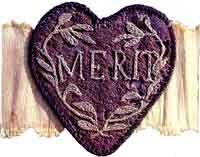-
America’s First Chief Justice
October 19th, 1789
John Jay is sworn in as the first Chief Justice of the United States“The Americans are the first people whom heaven has favoured with an opportunity of deliberating upon and choosing forms of government under which they should live. . .
“Every member of the State ought diligently to read and to study the constitution of his country. . .By knowing their rights, they will sooner perceive when they are violated and be the better prepared to defend and assert them.”
– John Jay,
selections from his “Charge to the Grand Jury of Ulster County”, 1777*Portrait of John Jay by Gilbert Stuart, 1794 (source)
-
Death of Samuel Adams
Samuel Adams
September 27th, 1722 – October 2nd, 1803“The liberties of our Country, the freedom of our civil constitution are worth defending at all hazards: And it is our duty to defend them against all attacks. We have receiv’d them as a fair Inheritance from our worthy Ancestors: They purchas’d them for us with toil and danger and expence of treasure and blood; and transmitted them to us with care and diligence. It will bring an everlasting mark of infamy on the present generation, enlightened as it is, if we should suffer them to be wrested from us by violence without a struggle; or be cheated out of them by the artifices of false and designing men. Of the latter we are in most danger at present: Let us therefore be aware of it. Let us contemplate our forefathers and posterity; and resolve to maintain the rights bequeath’d to us from the former, for the sake of the latter. — Instead of sitting down satisfied with the efforts we have already made, which is the wish of our enemies, the necessity of the times, more than ever, calls for our utmost circumspection, deliberation, fortitude, and perseverance. Let us remember that ‘if we suffer tamely a lawless attack upon our liberty, we encourage it, and involve others in our doom.’ It is a very serious consideration, which should deeply impress our minds, that millions yet unborn may be the miserable sharers of the event.”
– Samuel Adams,
essay written under the pseudonym “Candidus” in The Boston Gazette,
October 14th, 1771*Portrait of Samuel Adams by John Singleton Copley, c. 1772 (source)
-
The Star-Spangled Banner
America’s national anthem, now known as “The Star-Spangled Banner,” was originally written by Francis Scott Key as lyrics to a popular song during the time of the War of 1812. When Key wrote it, however, the song was unnamed; not until the lyrics were printed in a broadside the following week did they appear under the title “Defence of Fort M’Henry.” But how did these now famous words come about in the first place?
Meeting with the British aboard the HMS Tonnant on September 7th, 1814, to secure the release of American prisoner Dr. William Beanes, Key and fellow lawyer John Stuart Skinner soon found themselves prisoners as well. Fearing that they knew too much about plans for the upcoming attack on Baltimore (September 12th-13th), the British agreed to release Dr. Beanes as long as the three men did not return to shore until after the skirmish was over. Although able to witness the bombardment from the ship he was on, Key would not know the outcome until morning had dawned on September 14th. Discerning the Stars and Stripes still flying high over Fort McHenry, Key was inspired to write:
O say can you see, by the dawn’s early light,
What so proudly we hail’d at the twilight’s last gleaming,
Whose broad stripes and bright stars through the perilous fight,
O’er the ramparts we watch’d, were so gallantly streaming?
And the rockets’ red glare, the bombs bursting in air,
Gave proof through the night that our flag was still there;
O say, does that star-spangled banner yet wave
O’er the land of the free, and the home of the brave?On the shore, dimly seen through the mists of the deep,
Where the foe’s haughty host in dread silence reposes,
What is that which the breeze o’er the towering steep,
As it fitfully blows, half conceals, half discloses?
Now it catches the gleam of the morning’s first beam,
In full glory reflected now shines in the stream:
‘Tis the star-spangled banner, O long may it wave
O’er the land of the free, and the home of the brave.And where is that band who so vauntingly swore
That the havoc of war and the battle’s confusion
A home and a country, should leave us no more?
Their blood has wash’d out their foul footsteps’ pollution,
No refuge could save the hireling and slave,
From the terror of flight, or the gloom of the grave;
And the star-spangled banner in triumph doth wave
O’er the land of the free, and the home of the brave.O thus be it ever, when freemen shall stand
Between their loved homes and the war’s desolation,
Blest with vict’ry and peace, may the Heav’n rescued land
Praise the Power that hath made and preserved us a nation!
Then conquer we must, when our cause it is just,
And this be our motto: “In God is our trust!”
And the star-spangled banner in triumph shall wave
O’er the land of the free, and the home of the brave.*Engraving by John Bower (source)
-
September 11th: 19 Years Later
Never Forget.
*September 11th “Tribute in Light” (source)
-
V-J Day
On September 2nd, 1945, aboard the American battleship USS Missouri in Tokyo Bay, representatives of the United States, Japan, and eight other countries signed the Japanese Instrument of Surrender, officially marking the end of World War II.
Below are selections from General Douglas MacArthur’s radio address that he gave to the American people following the ceremony:
“Today the guns are silent. A great tragedy has ended. A great victory has been won. The skies no longer rain death — the seas bear only commerce — men everywhere walk upright in the sunlight. The entire world is quietly at peace. The holy mission has been completed. And in reporting this to you, the people, I speak for the thousands of silent lips, forever stilled among the jungles and the beaches and in the deep waters of the Pacific which marked the way. I speak for the unnamed brave millions homeward bound to take up the challenge of that future which they did so much to salvage from the brink of disaster.
“As I look back on the long, tortuous trail from those grim days of Bataan and Corregidor, when an entire world lived in fear, when democracy was on the defensive everywhere, when modern civilization trembled in the balance, I thank a merciful God that he has given us the faith, the courage and the power from which to mold victory. We have known the bitterness of defeat and the exultation of triumph, and from both we have learned there can be no turning back. We must go forward to preserve in peace what we won in war. . .
“. . .Men since the beginning of time have sought peace. Various methods through the ages have attempted to devise an international process to prevent or settle disputes between nations. From the very start workable methods were found insofar as individual citizens were concerned, but the mechanics of an instrumentality of larger international scope have never been successful. Military alliances, balances of power, leagues of nations, all in turn failed, leaving the only path to be by way of the crucible of war. We have had our last chance. If we do not now devise some greater and more equitable system, Armageddon will be at our door. The problem basically is theological and involves a spiritual recrudescence and improvement of human character that will synchronize with our almost matchless advances in science, art, literature and all material and cultural developments of the past two thousand years. It must be of the spirit if we are to save the flesh. . .
“. . .And so, my fellow countrymen, today I report to you that your sons and daughters have served you well and faithfully with the calm, deliberated, determined fighting spirit of the American soldier, based upon a tradition of historical truth as against the fanaticism of an enemy supported only by mythological fiction. Their spiritual strength and power has brought us through to victory. They are homeward bound—take care of them.”
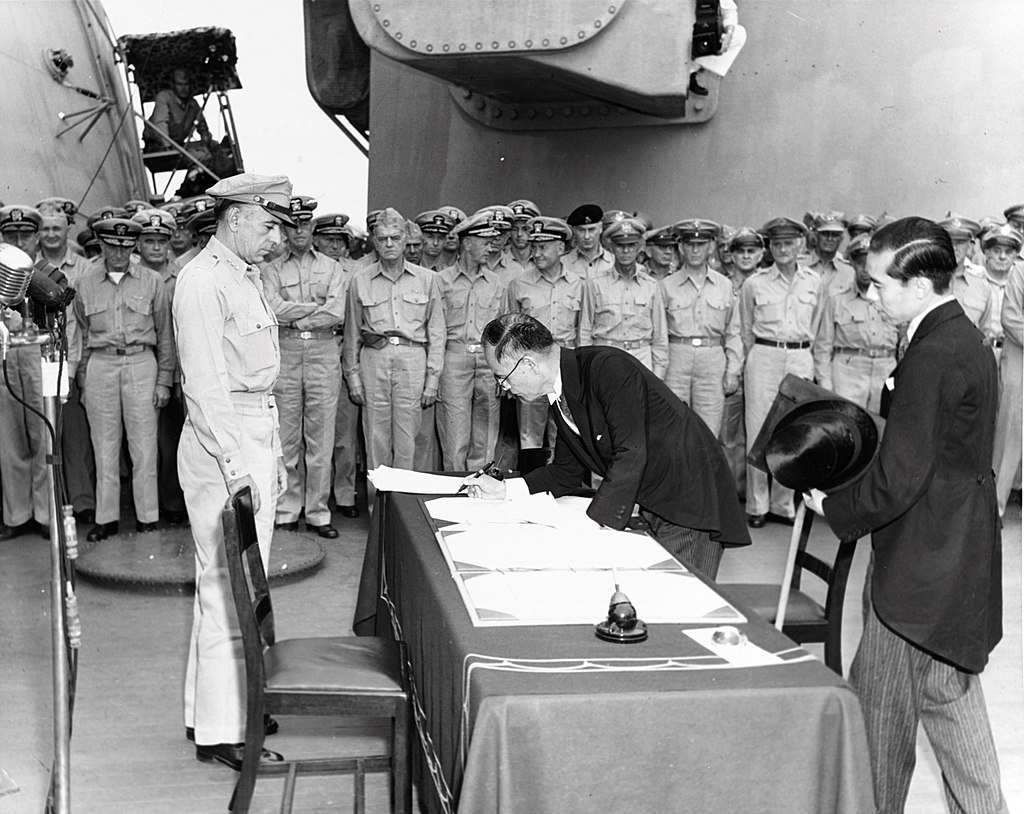
You can read the entire address here and watch footage from the surrender ceremony here.
*General Douglas MacArthur signs as Supreme Allied Commander during formal surrender ceremonies (source);
Japanese Foreign Minister Mamoru Shigemitsu signs on behalf of the Japanese Government (source) -
Purple Heart Day
The Badge of Military Merit, which would later be succeeded by the Purple Heart Medal in 1932, was created by General George Washington on August 7th, 1782. While armies in Europe had traditionally awarded medals only to officers in the military’s upper ranks, General Washington sought a way in which to honor the bravery and service of America’s common soldiers. As he wrote on that day:
“The General ever desirous to cherish virtuous ambition in his soldiers, as well as to foster and encourage every species of Military merit, directs that whenever any singularly meritorious action is performed, the author of it shall be permitted to wear on his facings over the left breast, the figure of a heart in purple cloth, or silk, edged with narrow lace or binding. Not only instances of unusual gallantry, but also of extraordinary fidelity and essential service in any way shall meet with a due reward. Before this favour can be conferred on any man, the particular fact, or facts, on which it is to be grounded must be set forth to the Commander in chief accompanied with certificates from the Commanding officers of the regiment and brigade to which the Candadate for reward belonged, or other incontestable proofs, and upon granting it, the name and regiment of the person with the action so certified are to be enrolled in the book of merit which will be kept at the orderly office. Men who have merited this last distinction to be suffered to pass all guards and sentinals which officers are permitted to do. The road to glory in a patriot army and a free country is thus open to all. This order is also to have retrospect to the earliest stages of the war, and to be considered as a permanent one.”
Read more about the Merit Badge and Purple Heart here and here.
*Badge awarded to Sgt. Elijah Churchill, May 3rd, 1783 (source)
-
Signing for Independence
While the Declaration of Independence was ratified by the Second Continental Congress on July 4th, 1776, modern historians believe that most of the delegates didn’t formally affix their signatures to this famous document until almost a month later, on August 2nd, 1776. In the following selection from his 1838 “Lyceum Address”, Abraham Lincoln eloquently states how Americans can continue to honor these men who signed – and even died – for us:
“Let every American, every lover of liberty, every well-wisher to his posterity swear by the blood of the Revolution never to violate in the least particular the laws of the country, and never to tolerate their violation by others. As the patriots of seventy-six did to the support of the Declaration of Independence, so to the support of the Constitution and laws let every American pledge his life, his property, and his sacred honor – let every man remember that to violate the law is to trample on the blood of his father, and to tear the charter of his own and his children’s liberty.”

